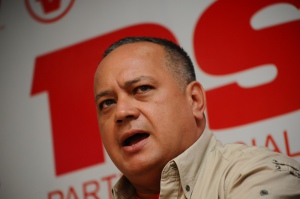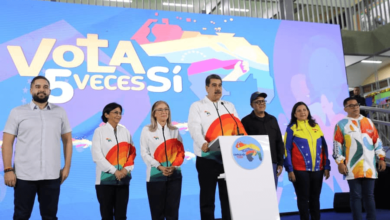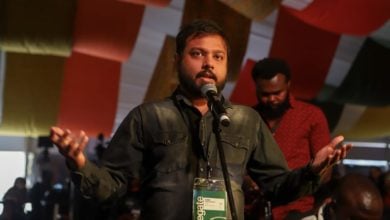
Ricardo Alarcón is former president of Cuba’s National Assembly of Popular Power. This article is a response to the U.S. and rightwing Venezuelan media’s outrageous attacks on Cabello, another tactic against the Bolivarian Revolution.
PUNTO FINAL No. 828
May 29, 2015
A CubaNews translation. Edited by Walter Lippmann.
Issued on March 9, President Obama’s Executive Order tagging Venezuela as “an unusual and extraordinary threat to the US national security” and declaring “a national emergency to deal with this threat” caused justified alarm and widespread rejection throughout the Continent and beyond. It was not the first time that Washington used a language as arrogant as it is irrational. History is brimming with examples of how the Empire has made use of such accusations to launch military attacks and break international law in various ways. They used similar words to justify their brutal armed invasions of Panama and the tiny island of Grenada, among other outrageous acts which crushed defenseless populations and brought death and destruction to nations stripped of their independence as a result.
Despite worldwide disapproval, the number of media campaigns against Venezuela has increased since then through a US-led propaganda apparatus that is now especially concentrating its attacks on the Bolivarian Republic of Venezuela’s National Assembly President Diosdado Cabello. They are accusing him of being linked to international drug trafficking, a slanderous and yet unproved charge rapidly echoed by hundreds of newspapers and other media from all over the world.
Who is Diosdado Cabello and why is he under attack?
Ever since he was a young officer, he joined Hugo Chavez in the struggle against the abuse and corruption that marked the Fourth Republic and after that, in the peaceful transformation conducted by the Bolivarian Revolution. He played a key role in the popular movement of resistance that thwarted the fascist coup in 2002 and returned Chavez back being head of State for which he had been democratically-elected by most Venezuelans.
In a clumsy maneuver to divide Chavismo, and following Chavez’s unfortunate death, the same hardcore right-wingers who are now vilifying him tried to make him President of the Republic, but he adamantly refused. Diosdado Cabello gave a remarkable example of revolutionary firmness and spirit of unity, proving that he is moved by flattery no more than he is by threats.
Neither the conservative right nor imperialism forgives his attitude, as it embodies the will of a people bent on remaining independent and sovereign.






